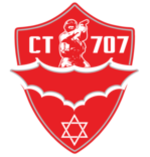The term LOTAR is the Hebrew acronym for ‘Lochama B’terror’, which translates to Counter Terror Warfare.
The LOTAR Unit, or Counter Terror Unit (officially designated as Unit 707), is the Israeli Special Force’s authority on everything related to counter terror warfare. The Unit functions as both a school and a special operations Unit.
The Unit is based out of the Mitkan Adam Special Forces Base in Central Israel.
As a School, the LOTAR is responsible for governing everything related to Counter Terror Warfare in the IDF, this includes governing all the IDF’s TTP’s (Tactics, Techniques, and Protocols) on Counter Terror Warfare as well as certifying all the IDF Special Units that are tasked with any facet of Counter Terror Warfare.
Some of the TTP subjects the LOTAR is in charge of include:
- Hostage Rescue operations in domestic and foreign/hostile environments
- Take-Over/Assault of buildings, airplanes, ships, trains, and buses
- Urban warfare
- Active Terror Attack intervention
- High Risk arrest operations
- Underground tunnel warfare
- Sniping
- Breaching
- Rappelling
- Krav Maga
- And more…
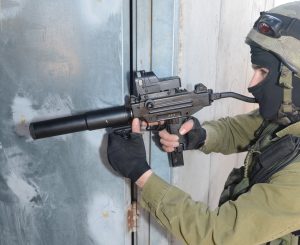
The LOTAR is divided up into several Sections/Teams which include:
Hostage Rescue Take-Over Section (Ishtaltut)
-This Section is in charge of all subjects related to Hostage Rescue Designated Take-Over operations and is in charge of training the IDF’s primary Hostage Rescue Units (Sayeret Matkal, Shayetet 13/Naval Commandos, LOTAR Eilat).
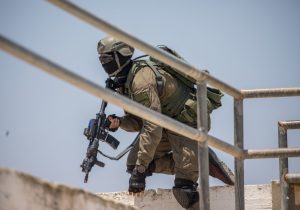
Intervention (Itarvut)
-This section is in charge of the subject of Intervention. Intervention refers to the rapid response and intervention of an active terror attack, such as an active shooter attack. Intervention Units are also first response units to hostage situations. In hostage situations the Intervention Unit’s responsibility is to surround the attack site, control the perimeter and gather intelligence for the Designated Take-Over Unit. In the event that terrorists begin executing hostages before the Designated Take-Over Unit arrives on scene, the Intervention Unit will storm the location to resolve the threat immediately.
Intervention Units are predominantly deployed to carry out arrest missions and searches of terrorist strongholds.
Breaching (Pritza)
-This section is in charge of everything related to the capability of breaching, including mechanical, ballistic, and thermal breaching. This section is also responsible for developing advanced breaching equipment.
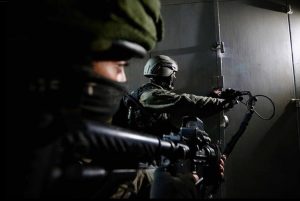
Rappelling and High Angle operations (Kofim)
-This section is referred to as the Terror Monkeys. They are in charge of the craft of gaining entry into structures from high/unconventional access points such as rappelling off rooftops into windows.
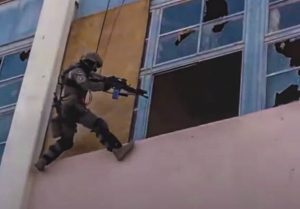
Sniping (Tzalafim)
-This section is in charge of the subject of sniping in both open environments and Urban environments.
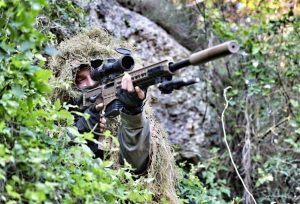
Underground Tunnel Warfare (Lochama Tat-Karkayit)
-This section is one of the newest sections created in the LOTAR. This section came as a necessity to combat the continuously growing use of underground tunnels by both Hezbollah and Hamas to attack Israel.
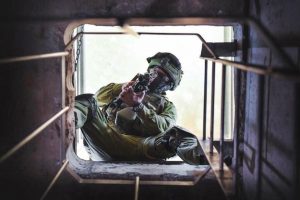
Close Protection Team / White House (Bayit Lavan)
-This section, called White House, is a security team that works with the IDF’s Chief of Staff Protection Unit in providing security for high-ranking members of the IDF, including the Chief of Staff.
Chief Instruction Section (Madaryah)
-This section is in charge of the School’s TTP’s. It is commanded by the Unit’s Chief Instructor and staffed by senior Unit Instructors. This section is responsible for governing all the TTP’s deployed by the entire IDF Special Forces Units and for developing new TTP’s for any TTP’s that are no longer relevant or that become compromised/mitigated by enemy threats. The section is also responsible for the on-going training and skill maintenance of the Unit NCO’s/Instructors, and it is also the home for any of the Unit’s Warriors that are no longer able to remain in an operational capacity due to injuries or other issues.
All the above sections/teams serve as specialties for the LOTAR Unit during the Unit’s operational deployments, however they are also deployed on operations with other IDF SF Units.
In order to serve in the LOTAR, Soldiers must undergo the exact same process as any other Special Unit in the IDF. This includes:
-a difficult selection phase of several days in duration
-interviews and testing
-those who pass to this point will be entered into the Unit’s Counter Terror NCO (Non-Commissioned Officer) Qualification course.
The Unit’s qualification course is one of the most difficult Q-courses from all the IDF Special Units. It is 22 months in duration and includes:
-Infantry Basic training (3 months)
-Infantry Advanced Field training (4 months)
-Unit Basic training (2 months)
-Open field and Urban navigation (2 months)
-Squad Commander course (4 months)
-Counter Terror Warfare (7 months)
One of the unique elements of the LOTAR Qualification course is that recruits go through Krav Maga training every single day for the entire duration of the course, anywhere between 2 to 6 hours per day, unlike the Qualification courses for all the other Special Units that undergo Krav Maga training a fraction that amount. The Krav Maga training LOTAR recruits go through is extremely difficult and contributes a large portion to what makes the Unit’s Q-course so difficult. In fact, given that the amount of Krav Maga training they receive is so extensive, it qualifies the LOTAR Instructors to attend only the final 4-day testing phase of the 1.5 month Wingate/BAHAD 8 IDF Krav Maga Instructor course to become certified IDF Krav Maga Instructors.
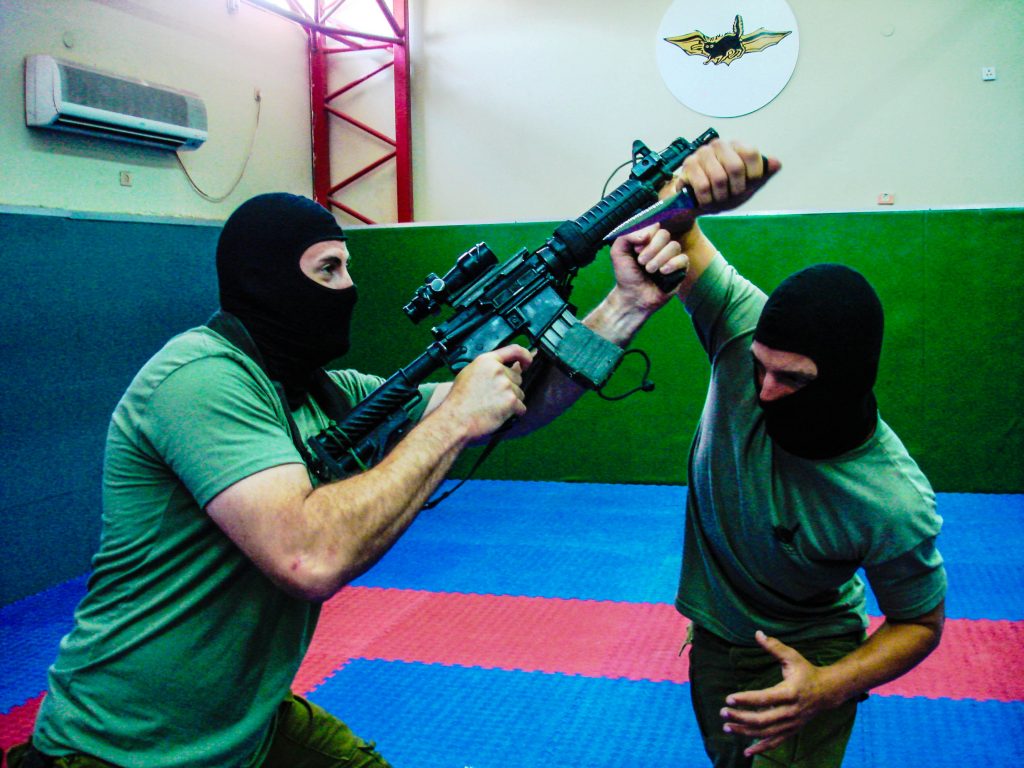
Upon successfully completing the Unit Counter Terror NCO Qualification course, the Soldiers receive their LOTAR Unit Warrior pins and are officially inducted into the Unit as Counter Terror NCO’s (Instructors and Special Combat Operators) and are assigned to one of the Unit’s specialty sections.
Operationally, the LOTAR Unit has both a Peace Time/Low Intensity Conflict designation and a War Time designation.
During Peace Time, the Unit carries out various missions throughout the West Bank and Gaza ranging from high-risk arrests of wanted terrorists to holding 24/7 readiness to respond to active terror attacks throughout Israel.
During War Time, the Unit is generally attached to an Infantry battalion for incursions into enemy territory, and once the incursion reaches urban/built up areas, the LOTAR takes over to carry out the entry, searches, and clearing of the buildings. Additionally, the Unit also carries out various other missions as assigned by the various IDF commands.
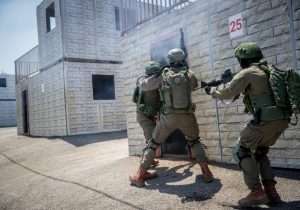
The LOTAR Unit Pin:
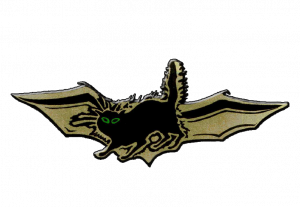
The Counter Terror Unit pin is comprised of a black cat with bat wings as the background.
The cat (displayed in its fighting/defensive pose) is an animal that embodies all the attributes for effective Counter Terror Warfare.
Counter Terrorism consists of the ability to very quickly and effectively react to a hostile attack (to defend) and the ability to effectively and surgically carry out pre-emptive actions against hostile threats to prevent their attacks from materializing (to hunt).
Both of these actions require a multitude of important attributes.
These attributes include speed, agility, stealthiness, intellect and strategy/the ability to effectively think. Physically, you need the ability to immediately ‘spring’ into action as well as to be very dynamic and versatile in capabilities such as running, climbing, crawling, jumping, and of course effective at fighting.
On the pre-emptive side, the ‘hunting’ side when we go after the terrorists in their ‘lairs’, you need to be able to effectively track them down and close distance on them without letting them know you are there in their environment. Like a cat’s ability to stealthily ‘sneak’ up on its prey and pounce on it and neutralize it at the very last second when it’s too late for the prey to react.
The cat is the animal that possess all these attributes and capabilities.
The bat wings on the pin symbolize the nocturnal nature of the Unit given that the majority of our missions/operations we carry out at night time under the cover of darkness, for various reasons.
